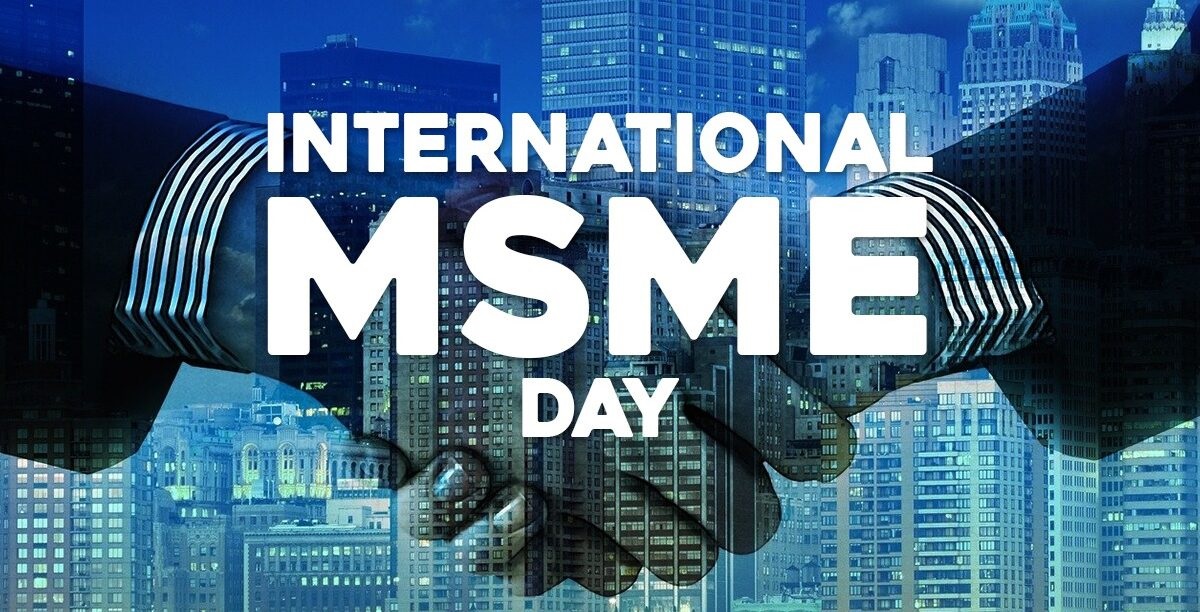
India celebrating ‘International MSME Day’ today
NEW DELHI : June 27 is observed as MSME Day. It is a day dedicated to celebrating the significance and achievements of Micro, Small and Medium Enterprises (MSMEs).
In 2017, the United Nations (UN) designated this day to recognise the vital role of MSMEs in promoting innovation, job creation, and sustainable economic growth. MSME Day highlights the need for ongoing support and innovation to help these enterprises thrive in a changing global environment.
The UN estimates indicate that MSMEs are the cornerstone of economic growth worldwide, accounting for 90 per cent of global businesses, 60-70 per cent of employment and 50 per cent of the world’s gross domestic product (GDP).
The World Bank notes that 60 crore jobs will be needed by 2030 to absorb the growing global workforce, which makes MSME development a high priority for many Governments around the world. Furthermore, in emerging markets, most formal jobs are generated by Small and Medium Enterprises, which create 7 out of 10 jobs.
In India, MSME Day is particularly significant. The country has over 6.5 crore registered MSMEs, contributing 31 per cent to the GDP and 45 per cent to total exports, employing more than 28 crore people. Today, MSMEs are omnipresent, traversing all sectors from Charkha to Chandrayaan.
They are spread over variegated sectors, stretching from retail trade to repair of computers, from food and beverage services to land transport, from the manufacturing of apparel to manufacturing of furniture, from pharmaceuticals to tourism, from khadi and village industries to literally catapulting Missions into space by manufacturing aerospace components. Accordingly, these enterprises get covered by schemes and policies of different administrative Ministries of the Central Government, accentuating the essence of the Whole of Government approach.
The theme of this year’s MSME Day is ‘Enhancing the role of MSMEs as drivers of Sustainable Growth and Innovation’. This underscores both the relevance of the sector and its potential role in meeting the Sustainable Development Goals (SDGs).
It is a well-known fact that the definition of MSMEs followed across the world is not uniform. While some countries follow an asset-based definition, MSMEs in some other countries are identified in terms of their employment. In 2020, India became one of the countries that adopted twin criteria based on investment in plant and machinery and turnover of enterprises to classify them as MSMEs. The overall ceiling for MSMEs was Rs 50 crore for investment and Rs 250 crore for turnover. To allay apprehensions of losing entitlements related to MSMEs, from 1st April 2025, the ceilings were raised to Rs 125 crore and Rs 500 crore for investment and turnover, respectively. The Indian MSME sector is also unique in its recognition and purposeful formalisation of informal micro-enterprises. The closest proxy measure of the universe of MSMEs is the number of non-agricultural unincorporated enterprises estimated by the Ministry of Statistics and Programme Implementation’s Annual Survey of Unincorporated Sector Enterprises (ASUSE). The latest report of ASUSE of January 2025 estimates 7.34 crore such enterprises. Since 1st April 2023, the number of formalised enterprises has grown fourfold, to 6.5 crore. The effort to bridge the formalisation gap is discernible. Formalisation extends the twin benefits of providing an identity to the enterprise and creating entitlements for it because of its MSME status. Enterprises registered on the Udyam Registration Portal or Udyam Assist Platform not only become eligible for Priority Sector Lending but also for schemes meant for MSMEs run by the Central Government and some State Governments.
With recently determined interventions from the Government of India to ensure affordable finance, accessible technology, and the availability of domestic and international markets, the sector has undoubtedly made great strides.
While during 2000-2023, as many as 70.7 lakh guarantees worth Rs 4.27 lakh crore were given under the Credit Guarantee Scheme for Micro and Small Enterprises (MSEs), during 2023-2025, there were 44.39 lakh guarantees worth Rs 5.08 lakh crore, indicating larger coverage of enterprises in a shorter period and a higher average guarantee amount. Recent reports corroborate the accomplishments of the sector. Niti Aayog’s report, released in May 2025, states that the share of MSEs accessing credit through scheduled banks rose from 14 per cent in 2020 to 20 per cent in 2024.
The share of Medium Enterprises increased from 4 per cent to 9 per cent during the same time. SIDBI’s survey report for May 2025 elucidates affirmative findings. 90 per cent of the survey respondents claimed to be using digital payments. 18 per cent had benefited from digital lending platforms. While one-third of the respondents stated that they had adopted at least some form of sustainable practice, an equal proportion also mentioned that limited awareness was the main hindrance to adopting sustainable practices. Mandatory procurement of CPSEs from MSEs gives enterprises the comfort of certainty. While in 2023-24, CPSEs procured Rs 74,828 crore from MSEs, the corresponding figure in 2024-25 grew by 25 per cent to Rs 93,697 crore.
In recognition of the achievements of MSMEs, National Awards for MSMEs have been instituted to encourage entrepreneurship and enthuse potential risk-takers to emerge as successful entrepreneurs.
The MSME Day is more than just a celebration; it is a vital call for action to strengthen this essential pillar of economies around the world. Awareness among all stakeholders, robust and integrated central databases, strengthened digital public infrastructure for addressing various issues faced by MSMEs, including access to finance, academia-industry collaboration for effective technology transfer and incentives for adopting green technologies are some steps that will cement the role of MSMEs in designing sustainable Viksit Bharat.

